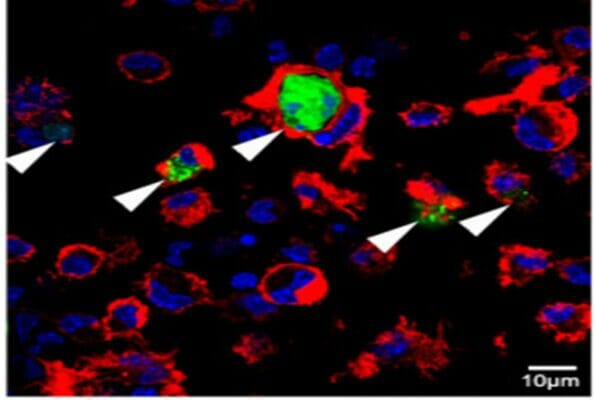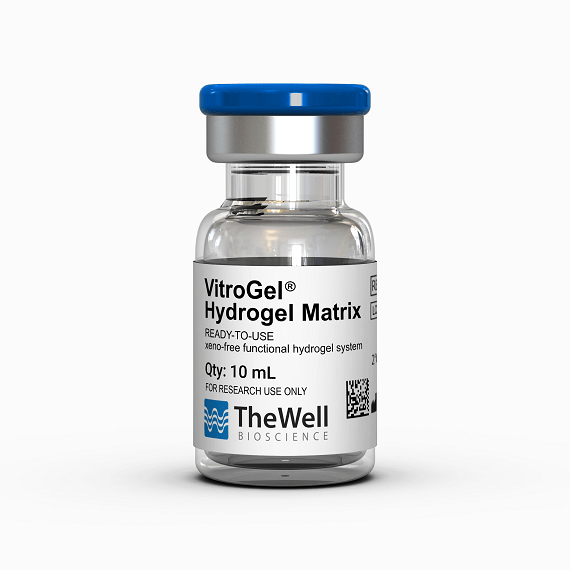Research Highlights
miR-340 Restoration Promotes Macrophage Phagocytosis and Antitumor Immunity via Regulation of CD47 Expression

Institutions:
Tianjin Medical University, Tianjin, China; Guangdong Pharmaceutical University, Guangzhou, China; University of Texas Southwestern Medical Center, Dallas, Texas, USA.
Team:
Xi q., Zhang J., Yang G., Zhang L., Chen Y., Wang C., Zhang Z., Guo X., Zhao J., Xue Z., Li Y., Zhang Q., Da Y., Liu L., Yao Z., and Zhang R.
Application:
Identification of a novel mechanism of miR-340 to promote macrophage phagocytosis and antitumor immunity in pancreatic cancer cells
Disease Model:
Pancreatic Cancer
Hydrogel:
VitroGel® 3D
Pancreatic ductal adenocarcinoma (PDAC) is one of the most lethal cancers in modern times with a 5-year survival rate of 8%. Unfortunately, while several treatments have been developed that modestly improve the survival length of PDAC patients, they have limited efficacy and rarely result in significant improvements. This lack of significant PDAC patient improvement highlights the need for novel effective treatment strategies. One new target for tumor immunotherapy is the inhibition of CD47, a transmembrane protein overexpressed on tumor cells which functions as a ligand for SIRPα. Binding of CD47 to SIRPα activates a signaling cascade to prevent tumor cell phagocytosis. Due to this function, recent approaches have evaluated the use of anti-CD47 antibodies which have the potential to greatly improve phagocytosis of hematological and/or solid tumor cells. In this study, the authors identify that miR-340, a novel microRNA, predicts PDAC cancer patient survival, and downregulates CD47 on pancreatic cancer cells to increase macrophage-mediated phagocytosis.
miR-340 was found to be negatively correlated with CD47 expression and overall survival of PDAC patients using a cohort of 16 normal pancreases and tissue from 34 different patients with pancreatic carcinoma. Likewise, miR-340 expression was significantly reduced in pancreatic tissue from PDAC patients when compared to tissue from normal individuals. To test whether high expression of miR-340 in Panc02 cells affected apoptosis, proliferation, or migration of cancer cells, the VitroGel 3D hydrogel was used, as it precisely reproduces important tumor-enriched metabolic states that cannot be observed in classical 2D cell culture environments. Furthermore, cell migration assays were conducted via the VitroGel matrix as well using 24-well cell culture inserts. Altogether, miR-340 overexpression resulted in no differences in cancer cell migration, proliferation, or apoptosis. Finally, when Panc02 cells stably overexpressing miR-340 were injected subcutaneously into mice with pancreatic tumors, a significant reduction in tumor growth and CD47 expression was observed. Altogether, the results elucidate the mechanisms behind an exciting miRNA known as miR-340, a novel target that inhibits pancreatic tumor cell proliferation via CD47 blockage. This novel discovery represents a new potential target for the treatment of pancreatic cancer.
Read the publication:
Related Products:



